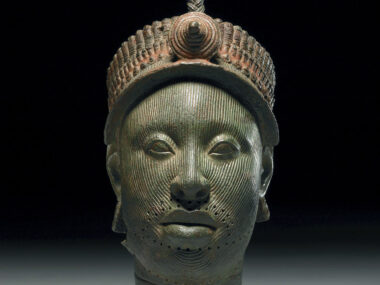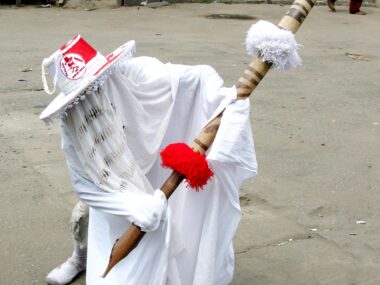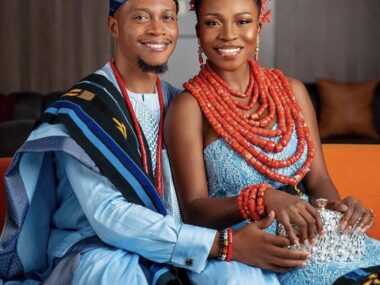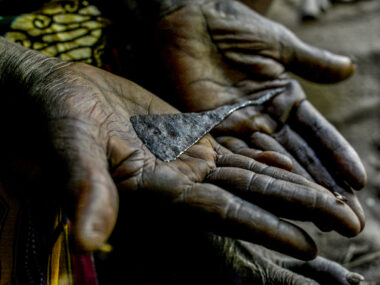Traditional governance and leadership have played a crucial role in shaping Nigerian societies long before the advent of colonial rule and the establishment of modern state structures. These systems, deeply rooted in the diverse cultures and customs of Nigeria’s numerous ethnic groups, continue to influence contemporary governance and community life. This essay explores the structures, functions, and significance of traditional governance and leadership in Nigeria, examining how they coexist with modern governmental frameworks and their impact on social cohesion, conflict resolution, and cultural preservation.

Historical Context
Before the arrival of colonial powers, Nigerian societies were organized into various kingdoms, chiefdoms, emirates, and clan-based communities, each with its unique system of governance. These systems were typically hierarchical, with leaders often chosen based on lineage, merit, or a combination of both. Leadership roles were imbued with spiritual, judicial, and administrative responsibilities, ensuring that leaders were not only political heads but also cultural and moral custodians.
Yoruba Kingdoms
The Yoruba people, predominantly found in southwestern Nigeria, were organized into city-states and kingdoms, such as the Oyo Empire, Ife, and Ijebu. The political structure of these kingdoms was highly centralized, with the Oba (king) at the apex. The Oba was supported by a council of chiefs and advisors, known as the “Igbimo” or “Oyo Mesi” in the case of Oyo. This council played a crucial role in governance, including the selection and deposition of the Oba.
The Oba was regarded as a divine ruler, believed to possess spiritual powers and the mandate of the gods. His role encompassed not only political leadership but also religious functions, such as presiding over important festivals and rituals. The traditional governance system ensured a balance of power, with checks and balances provided by the council of chiefs and other societal institutions like the Ogboni society, which acted as a judiciary body.
Igbo Clan-Based Societies
In southeastern Nigeria, the Igbo people practiced a more decentralized form of governance. Unlike the centralized kingdoms of the Yoruba, Igbo societies were organized into autonomous villages and clans, each governed by a council of elders known as the “Ama-ala” or “Ndichie.” Leadership was more democratic and consultative, with decisions made collectively by the council.
The Igbo also had a system of title-taking, where individuals could earn social status and influence through merit and contributions to the community. Titles such as “Ozo,” “Nze,” and “Ichie” were conferred on respected members of the community, who then took on leadership roles and responsibilities. This system promoted social mobility and ensured that leadership was based on merit and community service.
Hausa-Fulani Emirates
In northern Nigeria, the Hausa-Fulani people were organized into emirates, with the Emir as the central authority figure. The political structure of these emirates was influenced by Islamic principles, following the Jihad of Usman dan Fodio in the early 19th century, which established the Sokoto Caliphate and spread Islamic governance across the region.
The Emir held both religious and political authority, serving as the spiritual leader and head of state. He was supported by a council of advisors, including the Waziri (prime minister), Galadima (administrator), and other officials who managed various aspects of governance, such as finance, military, and justice. The Emir’s role included adjudicating disputes, overseeing the implementation of Islamic law (Sharia), and promoting economic and social development within the emirate.
Functions and Roles of Traditional Leaders
Traditional leaders in Nigeria play multifaceted roles that extend beyond mere governance. They are seen as the custodians of culture, mediators in conflicts, and symbols of continuity and stability. Their functions can be categorized into several key areas:
Cultural Custodians
Traditional leaders are the guardians of cultural heritage, responsible for preserving and promoting the customs, traditions, and values of their communities. They oversee important cultural events, such as festivals, rites of passage, and ceremonies, ensuring that these practices are maintained and transmitted to future generations.
For instance, the Oba of Benin presides over the annual Igue Festival, a major cultural event that celebrates the kingdom’s heritage and seeks blessings for the community. Similarly, the Shehu of Borno plays a central role in the celebration of the Durbar Festival, which showcases the rich cultural history of the Kanuri people.
Conflict Resolution
One of the most significant roles of traditional leaders is in conflict resolution. Their deep understanding of local customs and norms, combined with their moral authority, positions them as effective mediators in disputes. Traditional leaders often resolve conflicts within their communities through customary courts and informal mediation processes.
In the Niger Delta, traditional leaders have been instrumental in mediating conflicts between communities over resource control and environmental issues. Their intervention often prevents escalation and promotes peaceful coexistence. Similarly, in the Middle Belt region, traditional leaders have played key roles in resolving land disputes and inter-ethnic conflicts, promoting dialogue and reconciliation.
Social and Political Stability
Traditional leaders provide a sense of continuity and stability in their communities. They act as a bridge between the past and the present, ensuring that the cultural identity and social fabric of their communities are preserved. Their presence and authority help maintain social order and cohesion, especially in times of crisis.
In contemporary Nigeria, traditional leaders also play a complementary role to the formal government. They often collaborate with government officials and agencies to implement development projects, promote public health initiatives, and enhance social welfare. For example, traditional leaders have been pivotal in mobilizing communities for vaccination campaigns and promoting education in rural areas.
Economic Development
Traditional leaders contribute to economic development by leveraging their influence and networks to attract investments and promote local enterprises. They often facilitate the establishment of markets, craft industries, and agricultural projects, which provide livelihoods for their communities.
The Emir of Kano, for instance, has been actively involved in promoting economic activities in Kano State, supporting initiatives that boost trade and commerce. Similarly, traditional leaders in the Niger Delta have engaged with oil companies and government agencies to advocate for community development projects and ensure that local communities benefit from resource extraction.
Coexistence with Modern Governance
Despite the establishment of modern state structures, traditional governance and leadership continue to coexist with contemporary political systems in Nigeria. This dual system of governance presents both challenges and opportunities for effective governance and development.
Integration and Collaboration
In many Nigerian states, traditional leaders are formally recognized and integrated into the modern governance framework. They often hold advisory roles and participate in state and local government councils. This collaboration allows for the incorporation of local knowledge and customs into the formal governance process, enhancing its relevance and effectiveness.
For example, in Kano State, the Emirate Council collaborates with the state government on various development initiatives, providing valuable insights and support. Similarly, traditional leaders in the South West have been involved in regional security initiatives, working with government agencies to address issues such as crime and communal violence.
Challenges and Tensions
However, the coexistence of traditional and modern governance systems also presents challenges. There can be tensions and conflicts over authority and jurisdiction, particularly in areas where traditional leaders wield significant influence. Issues such as land ownership, resource control, and political representation can lead to friction between traditional and modern authorities.
Moreover, the role of traditional leaders in a democratic society raises questions about accountability and representation. Traditional leadership is often hereditary or based on lineage, which may not align with democratic principles of elected representation and accountability. Balancing these traditional structures with modern democratic ideals is an ongoing challenge in Nigeria.
Preservation and Adaptation
Despite these challenges, traditional governance and leadership have shown remarkable resilience and adaptability. Many traditional leaders have embraced modernization and reform, ensuring that their institutions remain relevant and effective in contemporary society. They have adopted new technologies, engaged in public policy debates, and advocated for social and economic development.
For instance, the Oo
ni of Ife has been an advocate for youth empowerment and economic development, promoting initiatives that harness technology and innovation. Similarly, the Sultan of Sokoto has played a prominent role in promoting interfaith dialogue and addressing contemporary social issues such as gender equality and education.
Conclusion
Traditional governance and leadership in Nigeria are integral to the country’s social, cultural, and political landscape. These systems, deeply rooted in the diverse traditions and customs of Nigeria’s ethnic groups, provide continuity, stability, and cultural preservation. Traditional leaders play multifaceted roles as cultural custodians, conflict mediators, and promoters of social and economic development.
While the coexistence of traditional and modern governance systems presents challenges, it also offers opportunities for a more inclusive and effective governance framework. By integrating traditional leadership into the modern state structure and addressing issues of accountability and representation, Nigeria can harness the strengths of both systems to promote social cohesion, cultural preservation, and sustainable development. As Nigeria continues to navigate the complexities of modernity and globalization, the role of traditional governance and leadership will remain crucial in shaping the country’s future.










